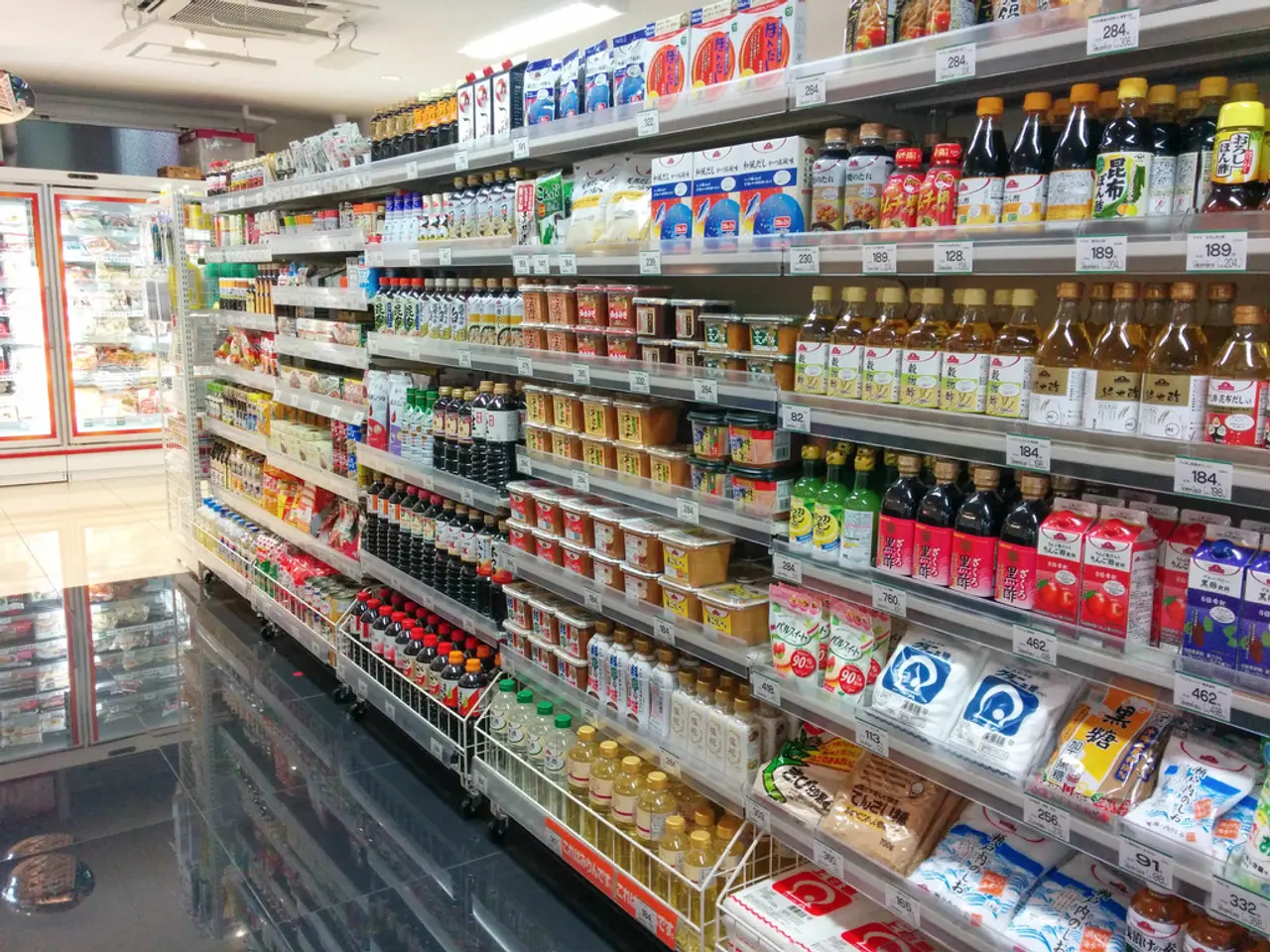Conflict Arises at Decision Point
==========================================================
In a challenging retail environment marked by economic pressures, cultural polarization, and rising customer expectations, Target Corporation is navigating a particularly difficult period. The company's recent decline in net sales, traffic, and transactions can be attributed to several key factors.
According to reports, inflation-weary consumers have pulled back on discretionary spending, leading to a dramatic shift in consumer behavior towards nonessential purchases. This shift has had a direct impact on Target's top line. Furthermore, concerns about potential tariffs increasing prices and backlash from consumers after Target scaled back its diversity, equity, and inclusion (DEI) initiatives have also contributed to the decline.
In the first quarter of 2025, Target's comparable store sales fell by 3.8% year-over-year, and customer visits per store declined about 4.8% year-over-year. These shifts reflect cautious consumer behavior amid economic uncertainty and brand perception challenges.
In response to these challenges, Target's CEO, Brian Cornell, has acknowledged the "exceptionally challenging environment" and outlined strategic changes to adapt. The company has established an Enterprise Acceleration Office aimed at simplifying operations, accelerating decision-making, increasing organisational clarity, and improving operational adaptability to market changes.
Target is also focusing on its food and beverage business as a vital lever for long-term growth, guest loyalty, and daily relevance. The company is investing in fresh merchandising layouts, improved refrigeration infrastructure, and new team training protocols to enhance the shopping experience.
Despite the decline in physical store sales, Target's digital sales grew by 4.7% in Q1, and same-day services like Drive Up surged by 36%. This growth highlights the importance of digital offerings in the current retail landscape.
The company continues to grow its Good & Gather and Favorite Day grocery private labels to reinforce price perception and quality. Remodeled Target stores will feature intuitive wayfinding, smaller formats tailored to urban markets, and enhanced cold-chain capabilities.
Target's CEO emphasised the need for consistency, reliability, great assortments, and a great in-store experience. The margin for error is shrinking for retail leaders due to the unprecedented complexity in the retail industry, and Target is striving to address these challenges head-on.
[1] Retail Dive. (2025). Target's Q1 sales miss expectations as traffic, transactions decline. [online] Available at: https://www.retaildive.com/news/target-q1-sales-miss-expectations-as-traffic-transactions-decline/604552/
[2] CNBC. (2025). Target's stock drops after Q1 earnings miss expectations. [online] Available at: https://www.cnbc.com/2025/05/18/target-earnings-q1-2025.html
[3] The Wall Street Journal. (2025). Target's Q1 Sales Miss Estimates as Consumers Pull Back on Spending. [online] Available at: https://www.wsj.com/articles/targets-q1-sales-miss-estimates-as-consumers-pull-back-on-spending-11684156600
[4] Bloomberg. (2025). Target's Shares Drop After Sales Miss Estimates. [online] Available at: https://www.bloomberg.com/news/articles/2025-05-18/target-s-shares-drop-after-sales-miss-estimates
[5] Reuters. (2025). Target's Q1 sales miss estimates as consumers pull back on spending. [online] Available at: https://www.reuters.com/business/retail-consumer/targets-q1-sales-miss-estimates-as-consumers-pull-back-on-spending-2025-05-18/
- In an attempt to strengthen their financial performance, Target Corporation is focusing on their private label brands such as Good & Gather, aiming to reinforce price perception and maintain quality as consumer behavior continues to shift due to economic pressures.
- As Target navigates the challenging retail environment, the company's CEO, Brian Cornell, recognizes the importance of understanding consumer behavior and adapting business strategies accordingly, particularly in terms of investment in their food and beverage business for long-term growth.




